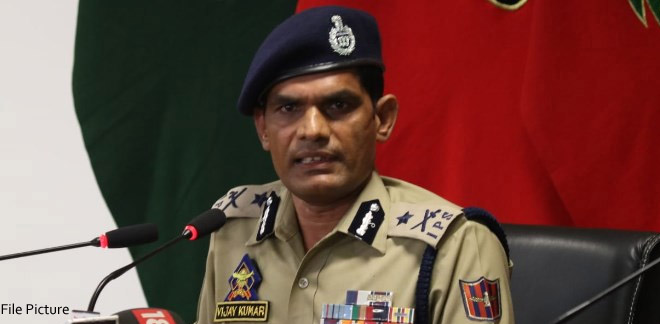‘More clergy under scanner’
Fayaz Bukhari
SRINAGAR, Sept 18: Additional Deputy General of Police (ADGP) Kashmir, Vijay Kumar, today said that religious preachers booked under Public Safety Act (PSA) were instigating youth despite being warned several times.
Click here to watch video
Talking to reporters on the sidelines of a cricket tournament at Baramulla, Kumar said that they had warned these people many times, but they didn’t budge.
“There are reports that some of the clerics are doing the same practice but soon after getting the proper evidence, they too will be booked,” he said.
He added that they have other legal options to curb them, while some are being sensitised and let go, however, the PSA is the last option when someone continues to indulge in wrong practice.
“Maintaining law and order situation is not the duty of police only but people too can play an important role in maintaining a peaceful atmosphere,” Kumar said.
He also said that over the few years situation remained calm, while tourists also visited the Valley in good number and internet services were also not snapped. “Calm situation benefits all and this has been proven over the past few years,” he said.
Over the last few days several religious clerics were arrested and few of them were booked under PSA in Kashmir.
Those booked under PSA are Abdul Rashid Dawoodi, patron Tehreek e Soutul Awliya, Moulana Mushtaq Ahmad Veeri and Abdul Majeed Dar Almadni of Jamiat-Ahle Hadees, Faheem Mohammad Ramzan, Tariq Rehman and Gazi Moinul Islam of banned Jamat-e-Islami and Sarjan Barkati.
Maulana Sarjan Barkati, a resident of Reban area of Shopian, came to limelight during 2016 agitation for his distinct style of sloganeering. He was arrested in October that year and subsequently booked under the PSA. Maulana Barkati was released in 2020.
These clerics and other persons were called by the police this morning and were later booked under PSA.
The PSA is an administrative law that allows detention without charge or trial for up to two years in some cases.


